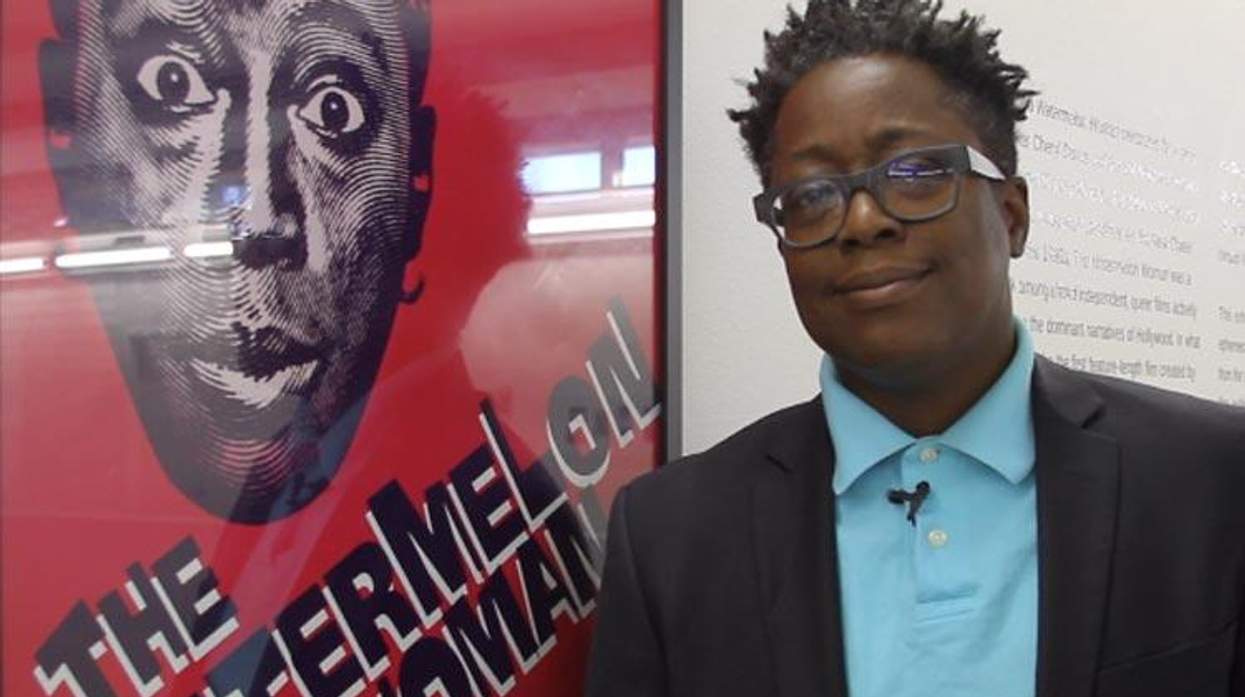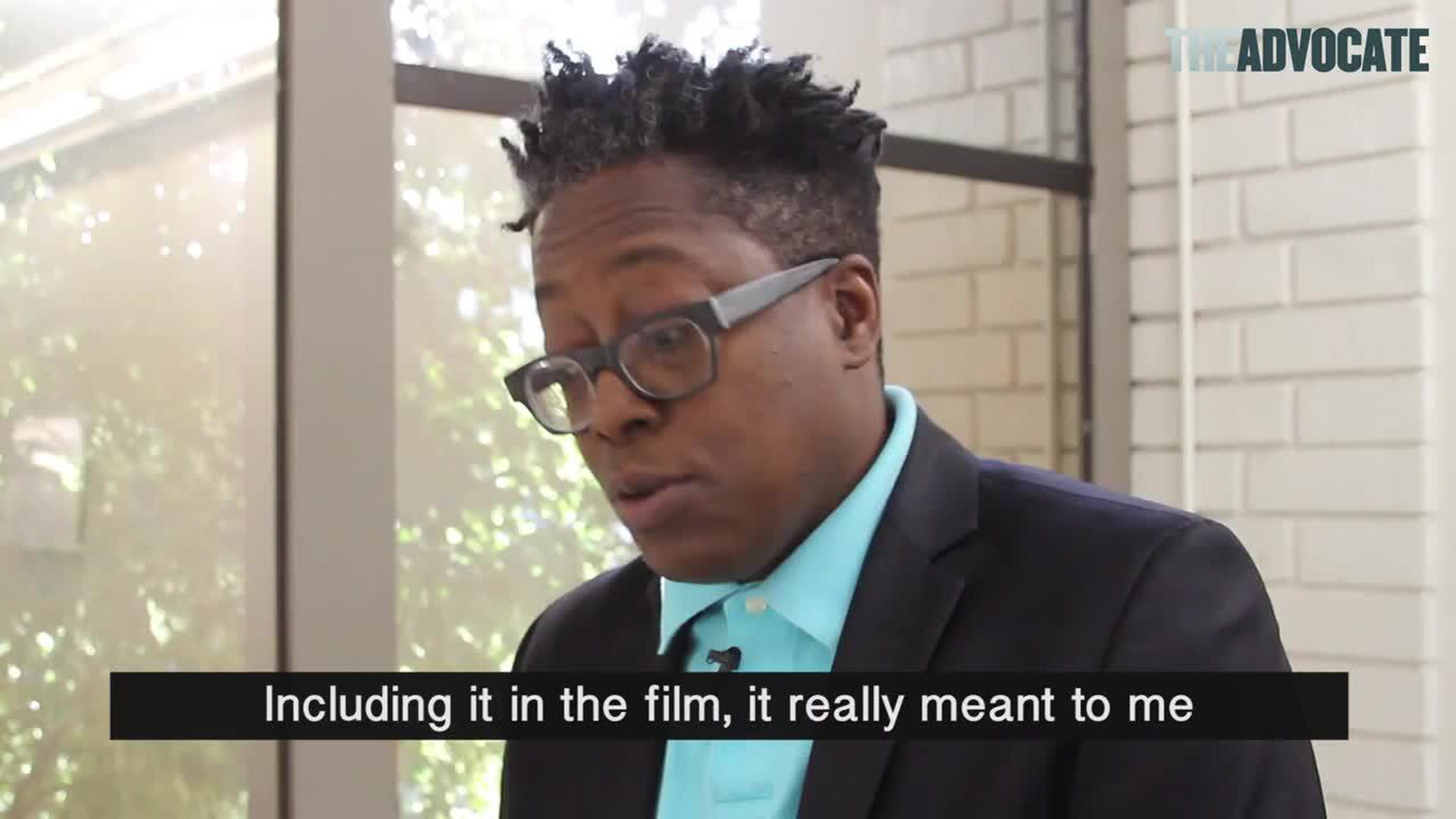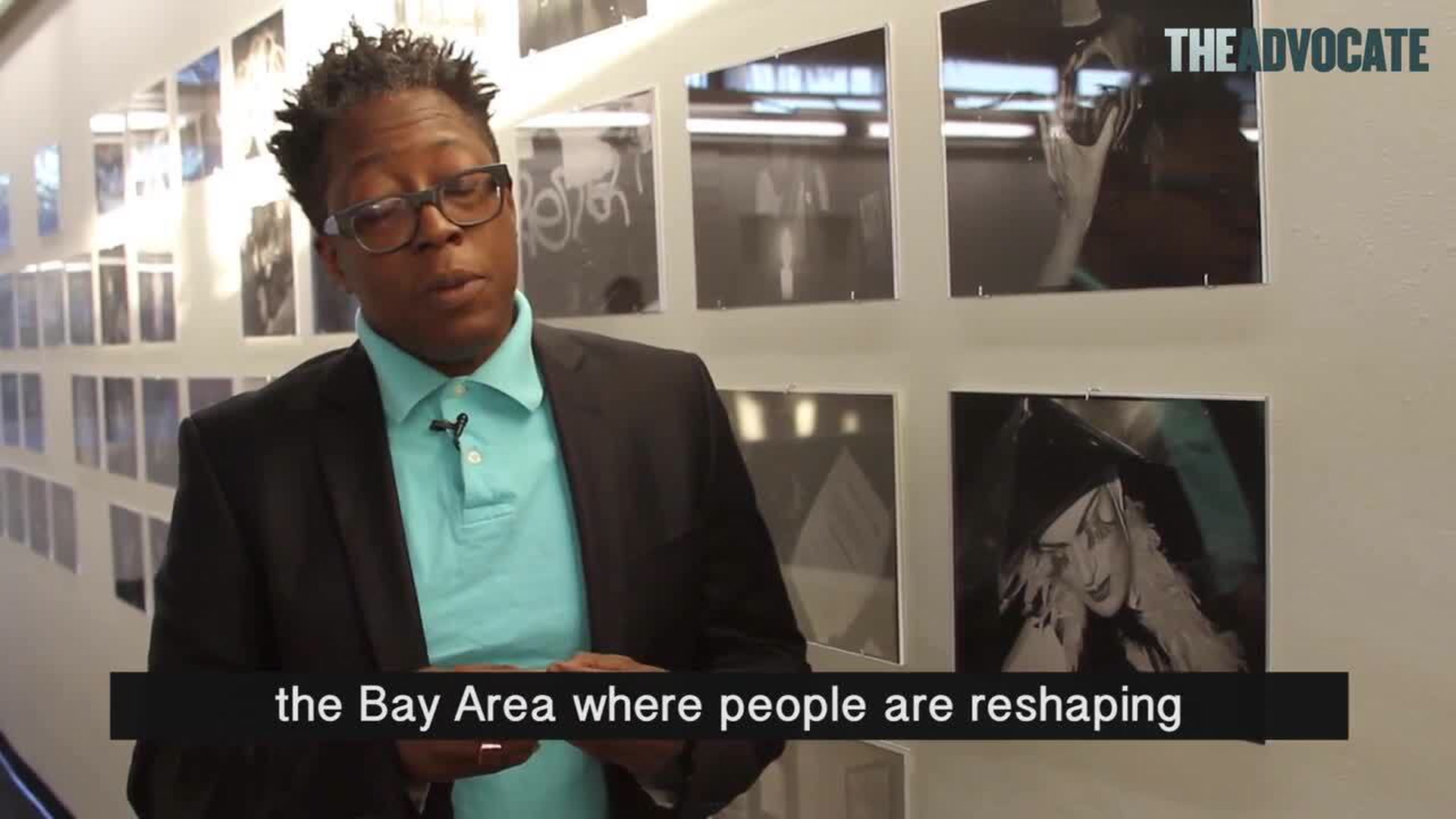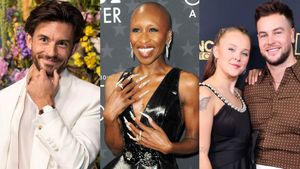Cheryl Dunye made her groundbreaking film debut with The Watermelon Woman in 1997. She wrote, directed, and starred in it as a version of herself on a quest to make a documentary about an obscure black actress billed as "The Watermelon Woman."
The film becomes a brilliant examination of archiving as a way of finding oneself. Her lighthearted, humorous, personable search underlines the absence of black queer women from cinema's history -- so much so that Cheryl has to make her own history.
Now, 20 years later, The Watermelon Woman is as radical and relevant as ever.
Timed with the 20th-anniversary DVD release of the film, the One Archives at the University of Southern California Libraries is exhibiting "Memoirs of a Watermelon Woman," featuring ephemera and archival materials from the making of the film. It features props, Polaroids, and paraphernalia from a filmmaker determined to represent herself on-screen.
It also includes photographs taken by the film's executive producer Michael Light. His photos candidly catalogue the crew's journey to the Berlin Film Festival, where they would accept the prestigious Teddy Award. The film is believed to be the first feature directed by a black lesbian.
Dunye's real and fictional research into the lives of LGBT people brought her to The Advocate.
We met her at the One Archives exhibit, and she shared what The Advocate means to her.
Dunye concluded with a call to action to creators, reminding us, "This is the most important time to make queer art."
Once on the hunt for representations of herself in archives, Cheryl Dunye and The Watermelon Woman are proudly on display.
Video contributions by Yezmin Villarreal and Angela Jude.






































































Charlie Kirk DID say stoning gay people was the 'perfect law' — and these other heinous quotes